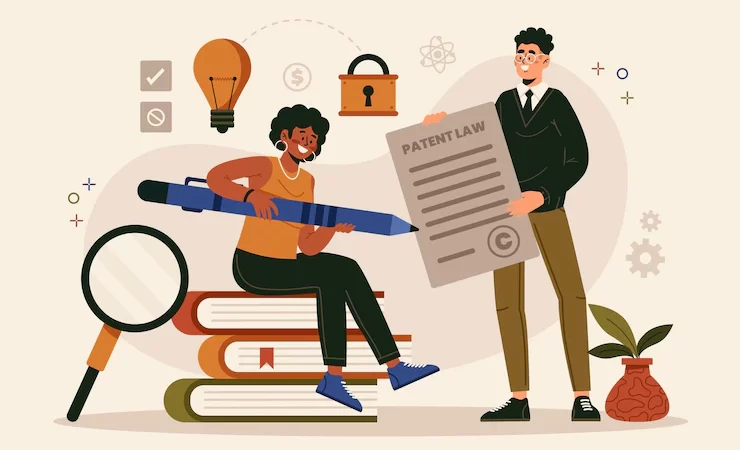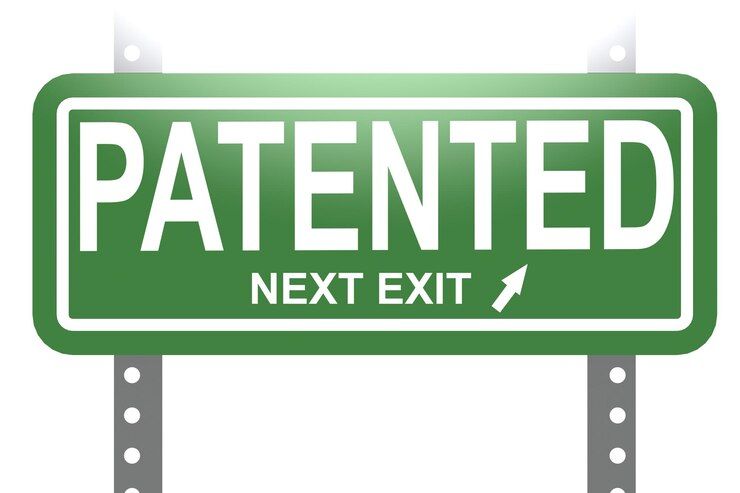How The Facebook Algorithm Works: The Four-Step Ranking Process
Barsha Bhattacharya, 4 days ago

Barsha Bhattacharya, 5 days ago

Shahnawaz, 6 days ago

Barsha Bhattacharya, 1 week ago


You should patent that!
It’s something you hear a lot in modern vernacular.
You might say it to someone with a particular tasty chocolate chip cookie recipe or if they’ve pitched you an idea for a 2-in-1 toaster and alarm clock.
Here, it’s mainly used as a tongue-in-cheek compliment. But the sentiment isn’t that far off from the real world of patents. So what is special about the technology patents?
Like the examples above, patents indicate the proprietary right to an idea, invention, “recipe,” or other intellectual property. And in the fast-paced, constantly evolving world of tech, scoring patents is a competitive sport.
This article aims to give you a basic rundown of technology patents: What are they, why are they essential to the contemporary tech landscape, and is there such a thing as “over-patenting”?
Let’s start with the absolute basics of technology patents first. Know what is a patent?
To answer this as accurately and succinctly as possible, we refer to the legal definition of a patent.
A patent is the granting of a property right by a sovereign authority to an inventor, exchanging.

This is an xclusive right to the patented process, design, or invention associated with a designated period. These all are done with a comprehensive disclosure of the invention.
Technology patents are a type of legal contract where the inventors are getting all the credits regarding the inventions of the technical factors. This is more like a chemical compound patenting.
That is the process where medicines manufacturing systems get the legal authority from the inventors.
In non-legalese, this means that a patent confers ownership of an idea to an inventor. No one else can profit from your invention unless they pay you a licensing fee.
Technology patents can be – and often are – a vital component of the current tech boom as they incentivize innovation, secure intellectual property, and foster a spirit of competition among businesses and inventors.
They are also a common way for modern tech companies to strengthen their foothold in a market – and to find or reassure investors.
A company will often start with a core patent and then expand its business’s offerings by adding patents for auxiliary services/products.

Take, for example, Noble, a real estate digital marketplace that uses a proprietary algorithm to create a “match score” between agents and buyers/sellers.
CEO Regan McGee tells Medium that, in addition to the algorithm, the company is “preparing to file three more patents for exciting technology” as they add “cool, interesting functionalities to (their) platform including auxiliary services (insurance, mortgages, etc.).”
This March, a popular Wired article shed some light on the flipside of tech patenting: over-patenting.
The author, Nat Watkins, recounts his tenure at a big tech employer (unnamed, obviously), where he wrote slapdash patent proposals as part of an “employee patent recognition program.”
It’s a crowdsourced approach to patenting that’s less about securing valuable intellectual property and more about winning the race to “call dibs” on a plethora of ideas. Inventions are simple and fast solutions to any kind of technical problem.

The individual company which is holding the patent has the alright to prevent any other company from making the copy or selling the items. This is actually a big drawback. The inventors can control the commercial use of the inventions. So in some cases over, parenting sometimes becomes a big issue.
An individual or company that holds a patent has the right to prevent others from making, selling, retailing, or importing that technology. This creates opportunities for inventors to sell, trade, or license their patented technologies with others who may want to use them.
| Note: On the off-chance, one of those technology patents associated ideas makes it big. In a world like a tech, which is filled with innovation and possibility, this approach is a cynical way for big tech companies to consolidate the power of ideas – before those ideas are fully fleshed out. |
Technology patents are one of the bedrock of business and have been for centuries. In the fast-paced world of tech, where possibilities are endless and evolution guaranteed, patents are the linchpin for many startups and new companies.
However, big tech companies often misuse patents to consolidate power over half-formed ideas.
Hopefully, this article offers a small window into understanding the wide world of tech patents!
Additionals:
Abdul Aziz Mondol is a professional blogger who is having a colossal interest in writing blogs and other jones of calligraphies. In terms of his professional commitments, he loves to share content related to business, finance, technology, and the gaming niche.